With the passing of the Coronavirus Aid, Relief, and Economic Security (“CARES”) Act, businesses are recommended to review the resources available to them to battle the effects of COVID-19 on their operations. We’ll focus on the resources set aside for companies that meet the Small Business criteria. $350 billion has been allocated for the SBA to provide loans of up to $10 million per business. These funds include emergency grants, forgivable loans, or relief for existing loans. The program is intended to help business owners pay for overhead costs such as payroll, rent, and utilities.
Is My Business Eligible?
If your business has fewer than 500 employees, you will be eligible for an Emergency Loan under the Paycheck Protection Program. This includes sole-proprietors, independent contractors, and other self-employed individuals. Also, the 500-employee limit includes all employees, regardless of their employment status. Lenders providing the loan are required to deem the business was in operation on February 15, 2020 and had employees or independent contractors for whom the business provided compensation and was subject to payroll taxes.
Information to Prepare
When you apply for the loan with the SBA, make sure to have the following information ready.
· Business Legal Name (In Nevada, this will be as it is listed with the Secretary of State)
· Trade Name (This can be your Fictitious Firm Name or DBA)
· EIN (Issued by the IRS) or SSN for Sole Proprietorship
· Gross Revenues for the Twelve (12) Month Prior to the Date of the Disaster (January 31, 2020)
· Cost of Goods Sold for the Twelve (12) Month Prior to the Date of the Disaster (January 31, 2020)
· Primary Business Address, Phone Number, and Email
· Date Your Business Was Established and / or Received Its Current Ownership
· Number of Employees (As of January 31, 2020)
Limitations of The Loans
The program defines the “Covered Period” as the period between February 15, 2020 and June 30, 2020. The business applying for the loan is eligible to a maximum amount based on the business’s average total monthly payroll cost incurred during the one-year period before the date of the loan. During the cover period, each business may receive up to 2.5 times its average monthly payroll cost, subject to a $10 million loan limitation. The following are excluded when calculating for the maximum loan amount.
· Individual employee compensation over $100,000
· Payroll taxes and income taxes
· Employee compensation with a principal residence outside of the United States
· Employee compensation for someone that qualifies and will receive funds under the Families First Coronavirus Response Act.
What Can I Use the Loan For?
Eligible businesses may use the funds they obtain from the program for the following categories.
· Payroll costs
· Interest on real or personal property mortgage obligations in existence before February 15, 2020
· Rent under a lease agreement in force before February 15, 2020
· Utility payments including electricity, gas, water, transportation, telephone or internet, for which service began before February 15, 2020.
Forgivable Loans
If the loan is used for the categories above, the debt could be forgiven by lenders provided workers stay employed through the end of June or wages are not reduced by 25% and all employees are accounted for by June 30, 2020. The amount of forgiveness cannot exceed the principal amount. The forgiven loan will not be included in a business’s taxable income.
Other Features
The maximum rate of interest that lenders can charge for a loan obtained through the Paycheck Protection Program is four percent (4%). If the business has obtained a loan from the Economic Disaster Injury Loan program, they cannot obtain a loan from the Paycheck Protection Program for the same purpose. Businesses are required to certify, in good faith, that the funds will be used to retain workers, maintain payroll, make mortgage payments, lease payments and utility payments. Additional guidance may be provided by the SBA to lenders and borrowers. It’s anticipated to be a couple of weeks before applications are processed. It is encouraged to apply for the loan if you believe your business needs assistance. For more information, you can visit the SBA’s page on disaster loan applications here: sba.gov/page/disaster-loan-applications. You may also speak with your local business banker to see what programs they are offering to businesses around their community.
Careful planning is recommended to see which program may be the best fit for your business. Borrowers may want to consider consulting with a business attorney to ensure their business is ready to receive, and has a plan in place, when / if they gain access to capital. These are truly unfortunate times for many small businesses across Nevada but there are programs that can help them during this crisis.
